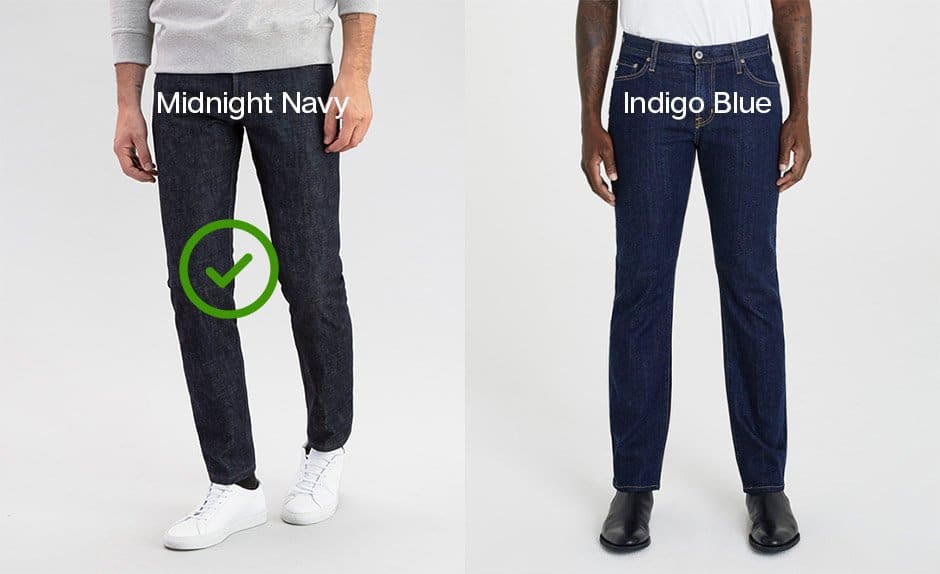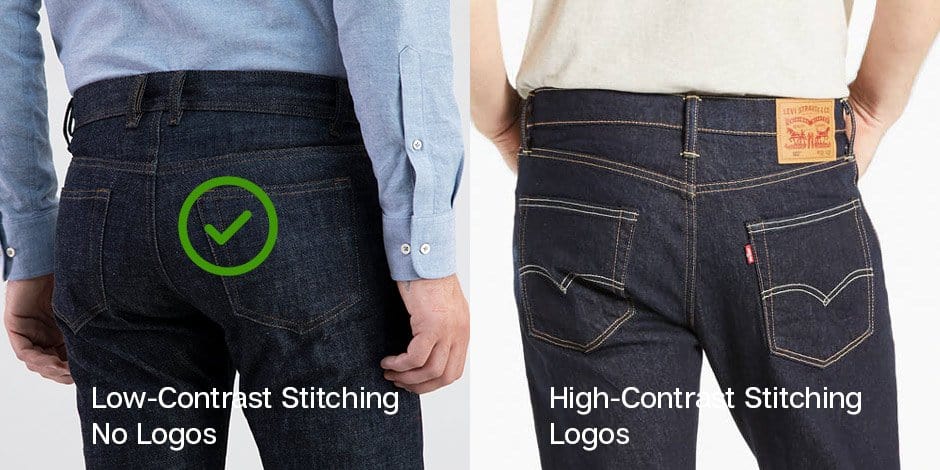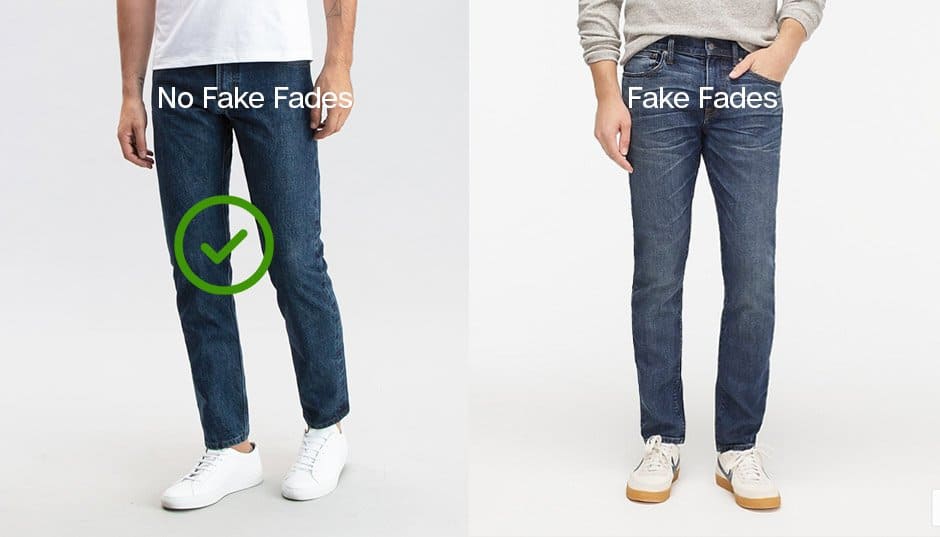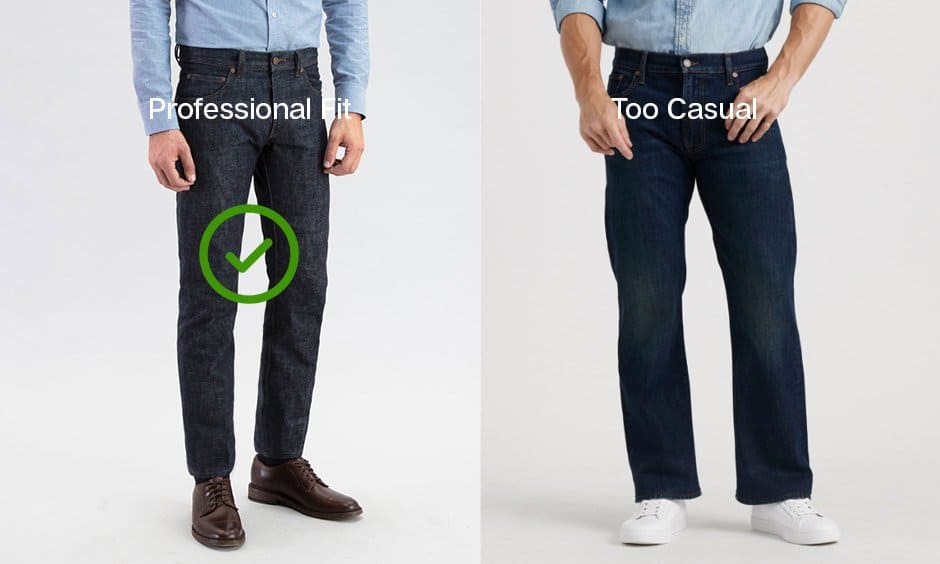6 Details That Make a Jean Good for the Workplace
The right details make a jean look professional. But some details make a jean too casual to be professional.

Here are the details that help make a jean work in a diverse range of workplaces and professions.
1. Dark Navy Denim Color
Traditionally, denim has been Indigo dyed. Indigo dye makes the denim a brighter shade of blue, and gives a jean an American-style. But American-style blue jeans come with a history, most commonly a casual-wear history.

For today’s workplace, we think jeans should have less casual-wear references, and be more versatile. Pro Original has a midnight Navy color, making it appropriate for any profession.
2. Low-contrast Stitching
Gold or yellow stitching makes a jean look casual, western, or vintage. But most jeans today still use high-contrast stitching.

With Pro Original Darks, we maintain the DNA of a classic blue jean, but without the bright stitching.
3. No Logos
Logos are meant to help people identify with a certain group or class. We believe this type of group identification should be limited in the workplace. Neutral branding helps guys better connect across different generations and worldviews.
4. No Stretch Denim
Stretch denim is and looks like a ‘comfortable’ product. The synthetic fibers necessary to make a jean stretch, changes the denim surface to look more casual.
Stretch denim is OK for guys who put comfort above style and fit. But we believe a jean for the workplace should be all-cotton, it looks more elevated, holds its shape better…and it’s still plenty comfortable.
5. No Fake Fades
We recommend avoiding pre-faded jeans, especially jeans that try to replicate vintage jeans. Regardless of how good the fake fades are, people sense they’re fake.

Faded jeans are acceptable in the workplace, but we the believe jeans should fade naturally, through lots of wear.
6. Up-to-date Fit
A professional jean should look like you care about details, and you’re aware of the fits that are current with the times.

We advise paying close attention to how much room you have through the seat, thighs, ankles – and the overall length. The most common improvement is reducing excess fabric in these key areas.
If you have questions about jeans for your workplace, reach out to us, we’re here to help.





